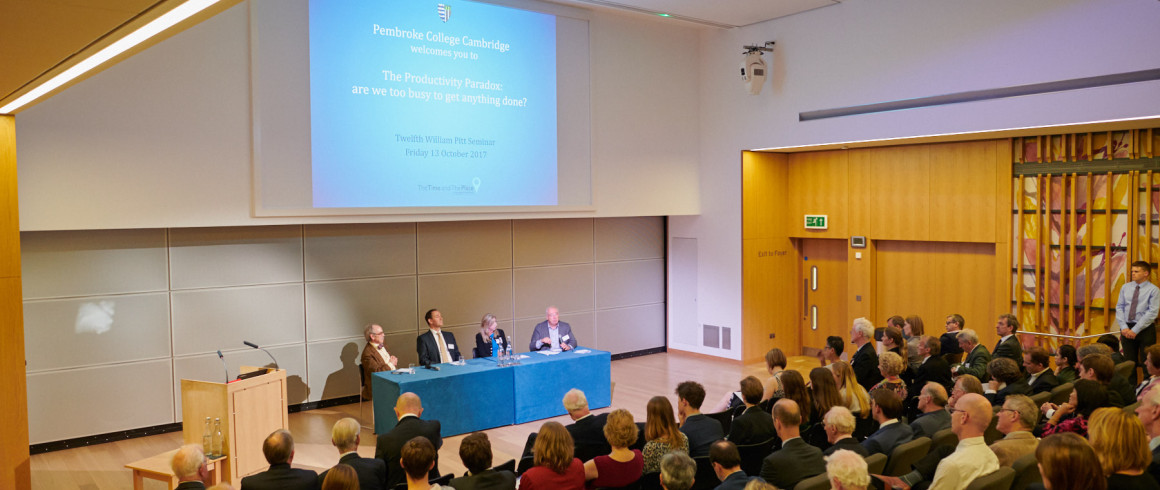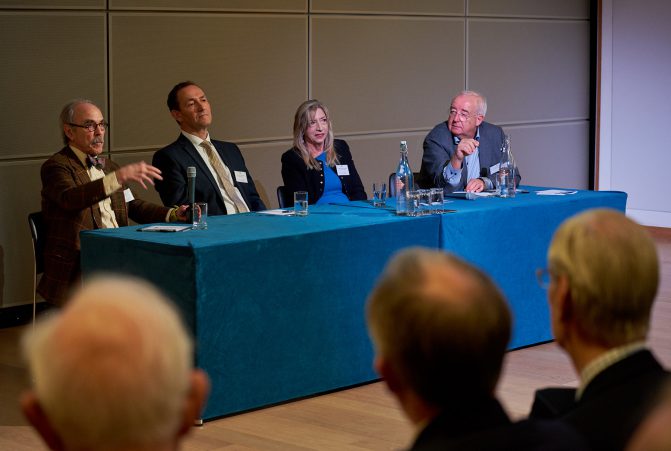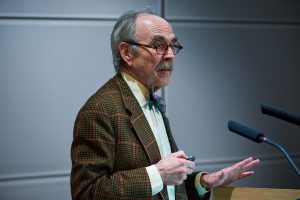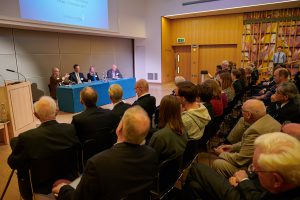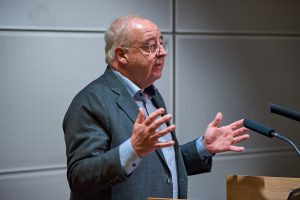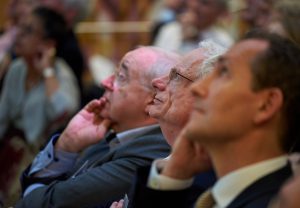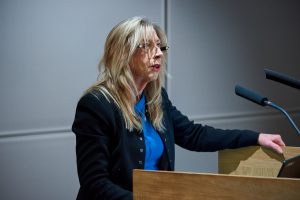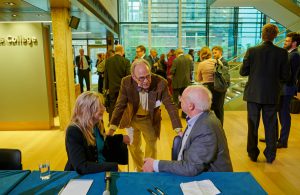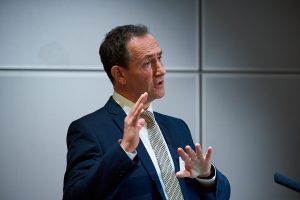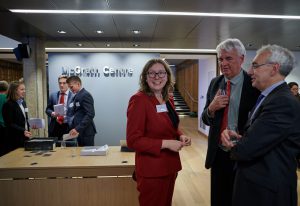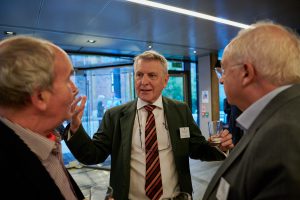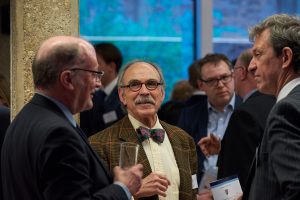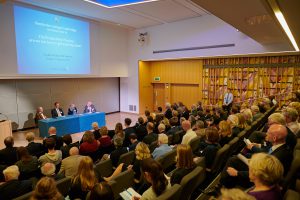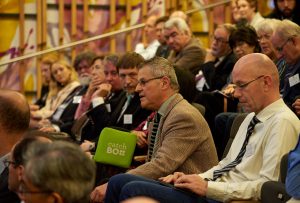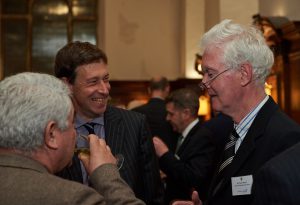The Twelfth Annual William Pitt Seminar
This year's William Pitt Seminar brought macro-economics and mindfulness together to ask ‘Are we too busy to get anything done?’
Why, in a world with unprecedented technological advances, countless digital tools for boosting productivity, and numerous apps, courses and books to help individuals improve the way they work, are we so worried that we aren’t fulfilling our potential? The twelfth William Pitt Seminar – ‘The Productivity Paradox: Are we too busy to get anything done?’ – brought together four distinguished speakers from an impressive range of backgrounds to help answer this question.
Dr Bill Janeway (1965), Chair, is a Senior Advisor and Managing Director of Warburg Pincus and an affiliated member of the Faculty of Economics at the University of Cambridge. He spoke on the [Macro-] Productivity puzzle – the strange slow-down in productivity experienced at the macro-level despite the amazing digital technology we have access to. Dr Janeway commented on several factors that help explain why digital revolution hasn’t equated to productivity revolution, including: redistribution of value globally as markets have opened up and evolved; the time required to build new infrastructure and work out how best to use it; and the increasing gap between those leading digitalisation and the rest of the world. The digital revolution is more of an evolution. Dr Janeway concluded with a quotation: “The future is already here, it’s just not evenly distributed” (source).
Dr David Cleevely CBE FREng FIET is an entrepreneur who has founded a series of companies and is currently Chairman of the Raspberry Pi Foundation, as well as the Founding Director of the Centre for Science and Policy. Dr Cleevely spoke about managing efficiency and seeking advantages through digital systems. In his first company he was able to make effective use of digital technology to make huge leaps in productivity, and this, he argued, is the foundation of a world-beating company. Automated processes are crucial for building systems that scale well, using one person to do what would have taken ten. Innovation, he believes, is not about making something in a lab. It is about putting that new technology in place and making it work.
From entrepreneurship to Neuropsychology. Professor Barbara Sahakian is Professor of Clinical Neuropsychology at the University of Cambridge, and has an international reputation in her field, with over 400 publications. Professor Sahakian spoke on how to keep the brain fit for good decision-making and creative thinking. Members of the ‘i-generation’, studies show, feel anxious if unable to check text messages; distractions are at an all-time high. Whilst there are pharmacological ways to help individuals with disorders like Alzheimer’s, Professor Sahakian also discussed ways to boost working memory and concentration without pharmacological help. Sleep, nutrition, physical exercise, and lifelong learning all play a role; if you don’t use your working memory, you lose it, and from there executive functioning worsens, too. By ‘gamifying’ tests and exercises, Professor Sahakian is finding new ways to boost working memory in patients and healthy people alike. The pathways to mental wellbeing? Be active, be mindful, keep learning, connect with people around you, and give to social causes.
Michael Chaskalson, a pioneer of the application of mindfulness in the workplace, completed the journey from macro-economics to personal productivity. Mindfulness is a way of paying attention in the moment, on purpose, and open-heartedly. As digital capabilities have increased, attention has shrunk; the adult attention span now sits at about eight seconds. Our consistent attention is increasingly fractured, and this affects both productivity and personal wellbeing. Practicing mindfulness for just ten minutes a day makes people better at collaboration, calmer, and more focused. And it’s easy to do – Mr Chaskalson gave a practical demonstration that showed that moving from a state of being ‘Mind Full’ to mindfulness takes a matter of minutes. By introducing mindfulness into schools and workplaces, as well as our personal lives, we can boost productivity and wellbeing.
Despite the range of topics covered by the speakers, the discussion continued to expand. Questions and comments touched on issues including: the need for disrupters to be mindful of the world they are disrupting; how to motivate people in the workplace; how to provide positive working environments to keep productivity high; and safeguarding essential skills whilst we integrate digital technology into our lives. Will the future be as mindful, innovative, and productive as we hope? Only time will tell.
Photos by Nigel Luckhurst
